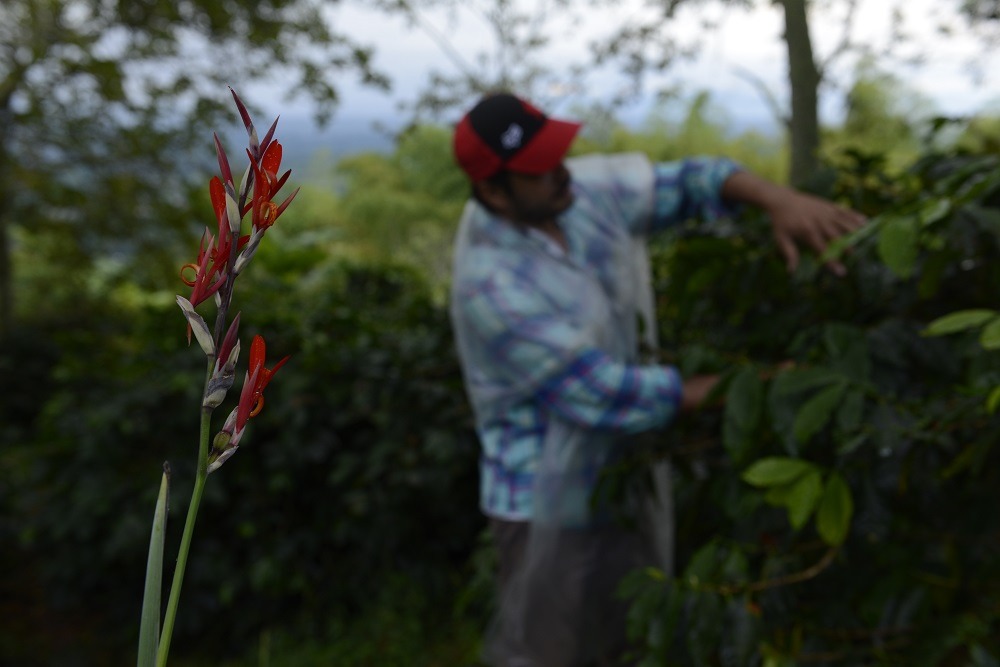The Food and Land Use Coalition is working with a diverse set of developed and developing countries. We seek to accelerate rapid action – from governments, philanthropy and civil society, businesses, international organisations and a range of other groups. The Coalition’s work is adapted to the distinct conditions and challenges of each geography, with shared features including: national science-based targets and long-term pathways, developed by individual country teams of the FABLE Consortium, including local knowledge institutions; an action roadmap for a new food and land use economy, developed in collaboration with policy-makers, that aligns with long-term goals and include key policy and regulatory reforms, investment priorities and funding mechanisms, and new public-private partnerships to drive change through the economy; a financial and investment prospectus to attract capital; support for, and development of, coalitions of action; and persuasive messengers or ambassadors.
Great progress has been made since the FOLU Coalition in-country roadmap team launched work in Colombia in Autumn 2017. The following provides a brief snapshot:
Science-based targets and pathways. As part of the Coalition, the FABLE Consortium is firming up Colombia’s in-country team, which will start on the modelling work shortly. A Latin American FABLE meeting in March will bring together teams from Argentina, Brazil and Colombia to develop a regional approach. The Brazilian team, which is further along in the modelling work, will share its experience on data availability and modelling with the two other countries’ modelling experts.
Roadmaps for a new food and land use economy. Working in close collaboration and consultation with key local stakeholders, the Coalition’s in-country team are hard at work on the first version of an ‘action roadmap’ towards a new food and land use economy, including a policy review and preliminary economic analyses. A stakeholder workshop in Bogotá – bringing together farmers’ representatives, NGOs, social entrepreneurs, private sector leaders and government officials – in late March will act as a critical moment to secure feedback and buy-in on the document and approach.
Ensuring results take hold. Dr Cristián Samper (CEO, the Wildlife Conservation Society), a FOLU ambassador, has discussed the Coalition’s work with Colombia’s presidential candidates. Plans are in place to engage more with presidential candidates in the lead-up to the presidential elections in May 2018.
Financial and investment prospectus. Work on a financing plan to correspond to the roadmap will launch in early Summer 2018. This will include recommended subsidy reforms, public and private capital investments, blended finance and more.

Coalitions of action. Work is underway to identify action coalitions to support each leg of the emerging roadmap. For some, action coalitions already exist. For others, additional support will need to be catalyzed. This is the case for food loss and waste (FLW) in Colombia. We are supporting and energizing the work of Desperdicio Cero to drive national efforts to halve food loss and waste by 2030.
The FOLU Coalition is working to gather government leaders, development institutions (e.g., the local FAO team) and companies, including domestic members of the Consumer Goods Forum and World Business Council for Sustainable Development, as well as domestically-headquartered companies. An initial meeting is planned for late March. This will explore the business case for taking FLW seriously, using case studies to demonstrate how and why to measure FLW and how to use this information to realize business benefits.
The Coalition has engaged with farmers’ associations, consumer groups and social development agencies with a commitment to redistributing surplus food to disadvantaged groups. The Coalition has also begun a dialogue with the team in the Bogotá mayoralty responsible for ensuring that school meals in the capital are healthier, and that less of the food goes to waste. A similar exchange is underway with the Ministry of Health experts leading Colombia’s efforts to reduce malnutrition and to tackle the country’s growing rates of obesity and diabetes.
Coalition chair Paul Polman (CEO, Unilever) hosted a successful meeting of CEOs, government ministers and civil society leaders in October 2017, introducing the work of the Coalition to key stakeholders from across sectors, and securing their commitment going forward.
Paul Polman hosted a successful meeting with key Colombian stakeholders in October, 2017
Meanwhile, scoping work is underway by the in-country team for advancing land use conversion-free commodities (e.g., cocoa) as part of the transition to more sustainable food and land use systems, working with the Tropical Forest Alliance, World Cocoa Foundation, IDH and other partners.
For more information: Please reach out to Craig Hanson (chanson@wri.org), Global Director of Food, Forests & Water at the World Resources Institute.










